Eight Great RPGs You Should Play if You Like Bravely Default
After you power through the latest portable epic, don't miss these back catalog greats.
This article first appeared on USgamer, a partner publication of VG247. Some content, such as this article, has been migrated to VG247 for posterity after USgamer's closure - but it has not been edited or further vetted by the VG247 team.
Bravely Default arrives in America at last. In case you missed the memo, it's pretty great, and you should definitely give it a go. Especially if you're on my 3DS friends list (summoned super attacks are the kindest thing one friend can do for another).
Chances are pretty good that most people are going to freebase the game and be done with it in a few weeks. And then what? Where are you going to find another classic-yet-cutting edge portable RPG? Nowhere, that's where. Well, not unless you look into the past and dig up some of Bravely Default's spiritual kin -- games that may not play exactly the same, but that share a definite creative resonance with Square's new masterpiece. From the kindness of my heart, I've singled out eight recent and not-so-recent games that'll keep your Bravely Default buzz going.
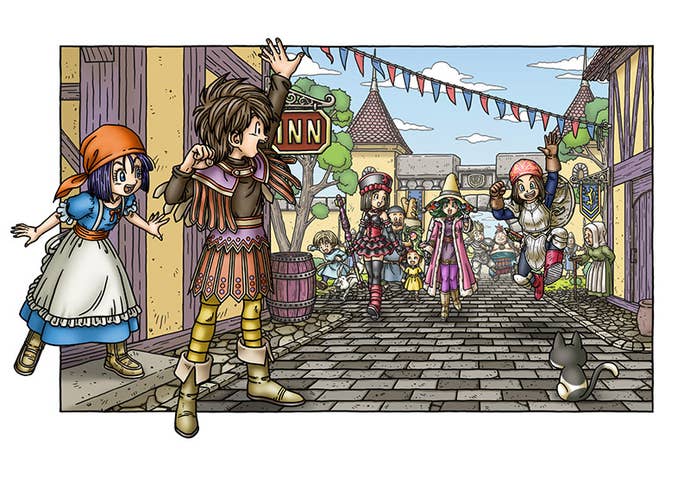
Dragon Quest IX
Why's it like Bravely Default?: Well, first, there's the obvious: It's a turn-based RPG with a four-character combat party and a customizable mix-and-match character class system. But as I've noted elsewhere, Dragon Quest IX may be Bravely Default's most direct antecedent because of its social features. Both games allow you to Street Pass with other players and gain bonuses from the interaction. As a caveat: DQIX's sharing is much more cumbersome, and the chances of encountering someone currently playing and passing the game are incredibly slight. But the spirit is there, and you can see how much Square Enix borrowed from its own game for Bravely Default.
What makes it unique?: Of course, where Bravely Default is steeped in Final Fantasy tradition, DQIX is staunchly Dragon Quest. That means it has a much more traditional style, and the story is less of an epic quest and more a string of small, interrelated adventures. It also features an impressively addicting alchemy system. And if you manage to find other DQIX fans, you can fight through the adventure with a party comprised of yourself and three other players -- yet still a traditional turn-based RPG.
Where to get it?: You should still be able to find it in stores... most likely one of those aging big-box retailer chains that people use as a showroom for browsing before buying stuff on Amazon.
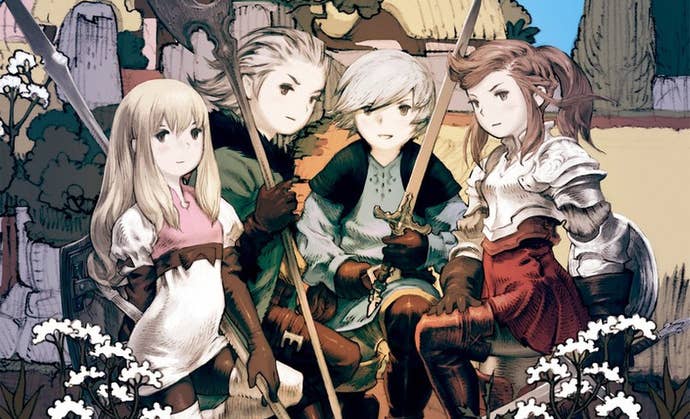
Final Fantasy: The 4 Heroes of Light
Why's it like Bravely Default?: Well, Bravely Default started out as a sequel to 4 Heroes, so it stands to reason they'd be similar. The two games share a similar visual style (thanks to art direction by Akihiko Yoshida), similar skills, similar Job classes, similar music, and a similar old-school-made-new vibe.
What makes it unique?: If Bravely Default is basically a modern-day Final Fantasy V, 4 Heroes was a modern-day Final Fantasy III. If you know your classic Final Fantasy, you know exactly what that means. It presents many of the same concepts and mechanics as its successor, but in a less refined manner. It has a very unconventional combat system reminiscent in some ways of older Dragon Quest games, where players don't directly target a foe but instead pick a command and the AI sorts out the details. It also has some aggravating design choices, like the way it splits up your player party or switches characters right when you're getting into the swing of things. But in truth, it's a solid and underrated game worthy of rediscovery.
Where to get it?: It didn't sell terribly well, so you may be able to find some remaindered copies somewhere. Otherwise, there's always eBay (check feedback ratings so you don't end up with a bootlegged version). I'd buy sooner than later, though; like a lot of undersold RPGs, it has the potential to become obnoxiously expensive before long.
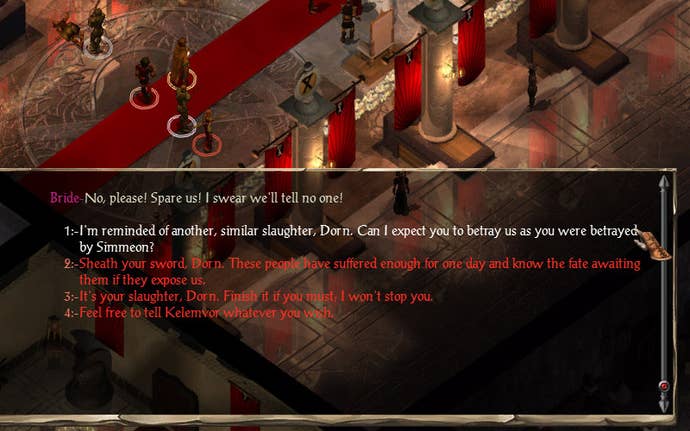
Baldur's Gate: Enhanced Edition
Why's it like Bravely Default?: One of Bravely Default's strongest features is its party chat feature, which uses optional conversations to greatly enrich the personalities of its otherwise mundane characters. But it has nothing on Baldur's Gate, which uses intraparty conversations to tremendous effect, up to and including the creation of tension and schisms within the party based on your actions and alignment.
What makes it unique?: And of course Baldur's Gate plays nothing at all like Bravely Default, being based wholly in Dungeons & Dragons. Instead, it's like a more primitive-looking version of BioWare's modern RPGs with far deeper game mechanics and character interactions. It bases your actions on computerized dice rolls, for crying out loud.
Where to get it?: It's available both on iPad and for PC on GOG.
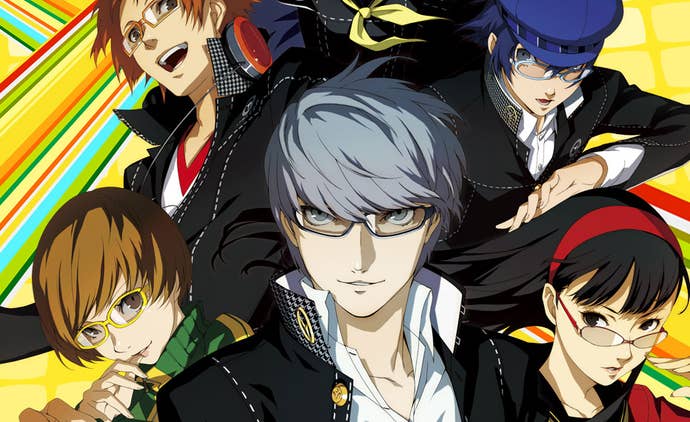
Persona 4 Golden
Why's it like Bravely Default?: Like Baldur's Gate, Persona 4 goes heavy on the party interaction; in fact, you could make a case that the combat RPG stuff is secondary to the character RPG stuff. Its lighter tone and younger cast hews more closely to Bravely Default, though... and it's portable.
What makes it unique?: Persona 4 toes the line between dating sim and role-playing game; it stays safely within RPG territory, though, because romantic dalliances are only a single facet of the many kinds of social interaction you experience in the game. While the battle mechanics are steeped in the rules of Shin Megami Tensei, the real appeal for most players comes from the moments between dungeons, in which you manage your hero's social and academic lives.
Where to get it?: Any respectable retailer should carry it, but failing that there's always PlayStation Network.
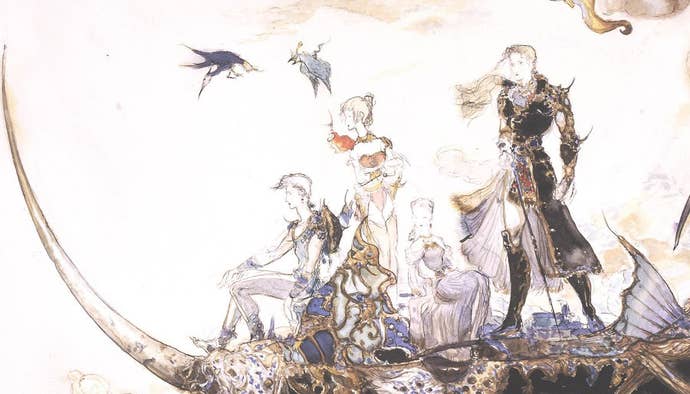
Final Fantasy V
Why's it like Bravely Default?: Jobs, Jobs, Jobs. Well, also, there's the thing about a party of two men and two women teaming up to discover the mystery behind the way the elemental crystals have been disrupted and are poisoning the world. Even the destruction of the village of Norende, which opens the game, hearkens back to Exdeath's summoning of The Void to swallow up the world.
What makes it unique?: FFV is defined by its flexibility of play, to the point that replaying it has become a collective annual tradition for hundreds of people. Because Jobs are doled out in big chunks (rather than singly as in Bravely Default), players can freely choose their tactics -- and because the game is so thoughtfully designed, you'd be hard-pressed to find a combination of Jobs and skills that can't potentially beat the game.
Where to get it?: The janky PlayStation version is available on PSN, and there's a crummy-looking mobile port, too. True connoisseurs, however, will seek out the GBA remake (Final Fantasy V Advance), which sells for a reasonable amount on eBay. Again, watch out for sloppy bootlegs.
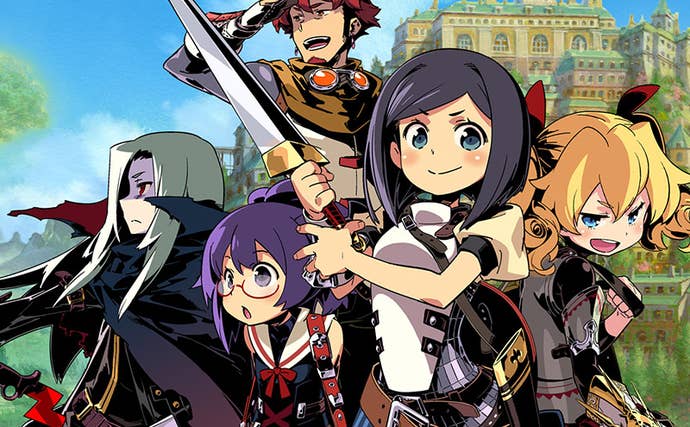
Etrian Odyssey IV
Why's it like Bravely Default?: It can be pretty tough... but it also offers a flexible difficulty in case you feel overwhelmed. And, like Bravely Default, it has a modernized old-school feeling.
What makes it unique?: Etrian Odyssey hails from a different RPG lineage than Bravely Default -- Wizardry, not Ultima -- so it's all about the exploration and combat. And its class system is far more limited than Bravely Default; you start building a character by defining their permanent class, and while you can eventually multiclass, don't expect to mix-and-match jobs. Instead, you can look forward to 40-some hours of grueling combat and hair's-breadth victories.
Where to get it?: As it's less than a year old, EOIV can be had at retail and via eShop.
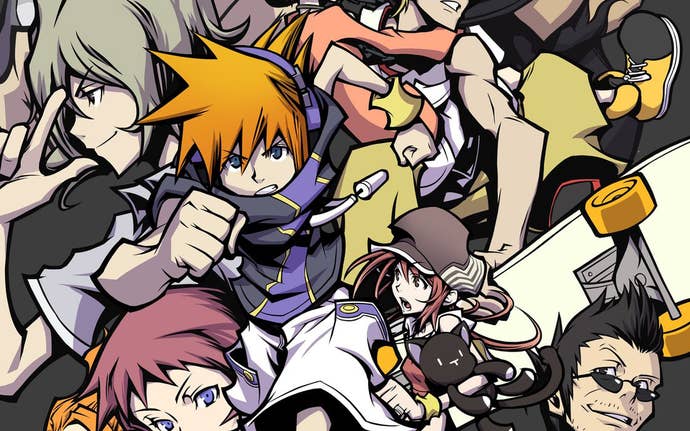
The World Ends With You
Why's it like Bravely Default?: While it plays nothing at all like Bravely Default, this quirky action RPG helped pave the way for Square Enix's latest handheld RPG masterpiece. You can customization combat frequency on the fly, and street passing with other players can make your characters much stronger. There were even bonuses for putting your system into sleep mode!
What makes it unique?: The World Ends With You feels more like Persona in terms of its setting -- modern-day Tokyo -- but it plays like nothing else. You guide protagonist Neku with the DS stylus on the bottom screen, activating your current set of attacks with gestures and taps while moving him to safety; with your other hand, you use DDR-like inputs to command Neku's current companion. Weird? Yes, but fun. And on top of that, there's actually some moral substance to the story. Good for the brain and the soul? What more could you ask?
Where to get it?: You can get the remixed version for iPad, which isn't too shabby... but I'd recommend hunting down a copy for DS. It's surprisingly not too hard to come by.
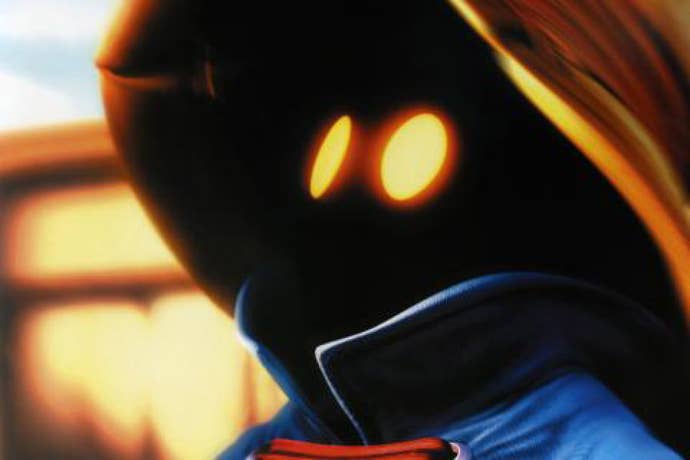
Final Fantasy IX
Why's it like Bravely Default?: It was Bravely Default before there was Bravely Default. That is to say, it was an attempt to recapture the vanishing glory of Final Fantasy's early days in the face of encroaching technology. Actually, it was an attempt to have it both ways; it offered the medieval charm of old-school Final Fantasy and the fancy full-motion cutscenes of the PlayStation era all at once. And both FFIX and Bravely Default began life as Final Fantasy spin-offs... though they went different directions, with FFIX becoming a core Final Fantasy title and Bravely Default becoming something else altogether.
What makes it unique?: FFIX turned out to be a last hurrah for the classic Final Fantasy aesthetic before the series jumped off altogether into the funky sci-fi aesthetic that FFVII and FFVIII precipitated. But there's something really appealing about seeing a rustic fantasy world and a four-member combat party in the context of a detailed, cinematic 32-bit Final Fantasy.
Where to get it?: It's on PlayStation Network and runs on PlayStation 3, PSP, and Vita. You have options!
